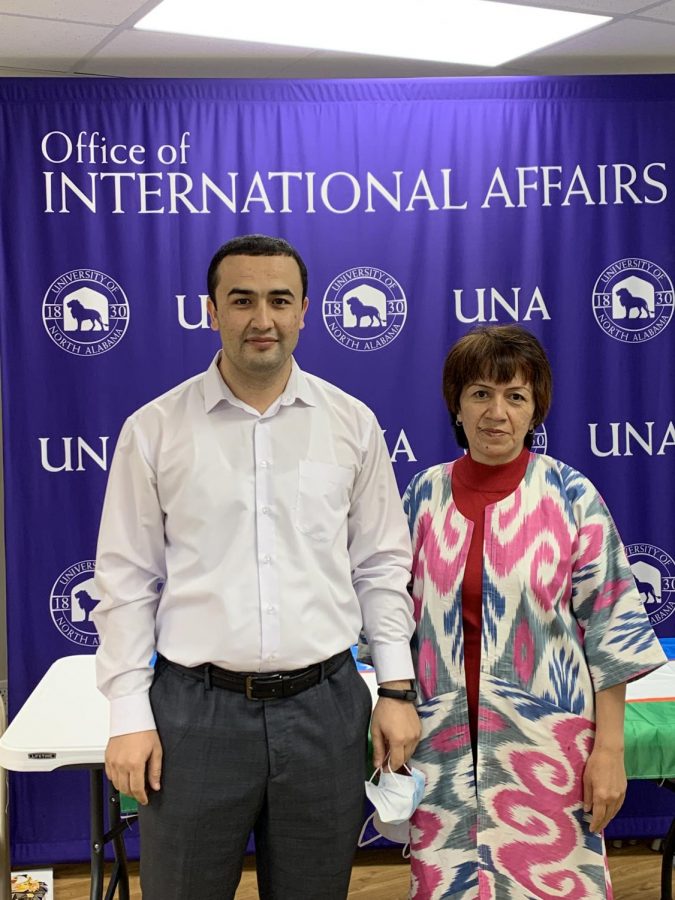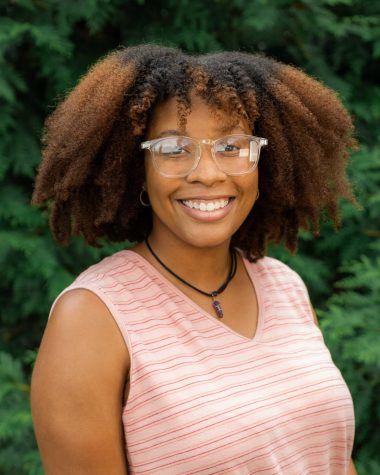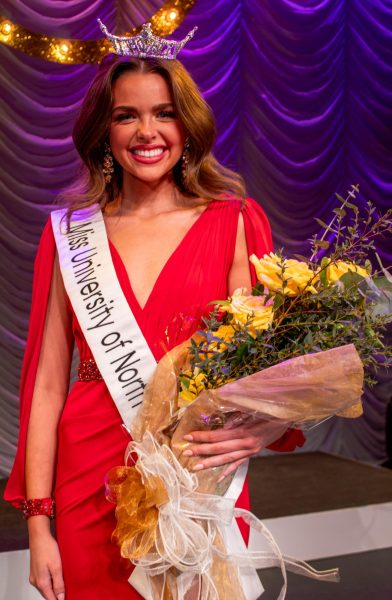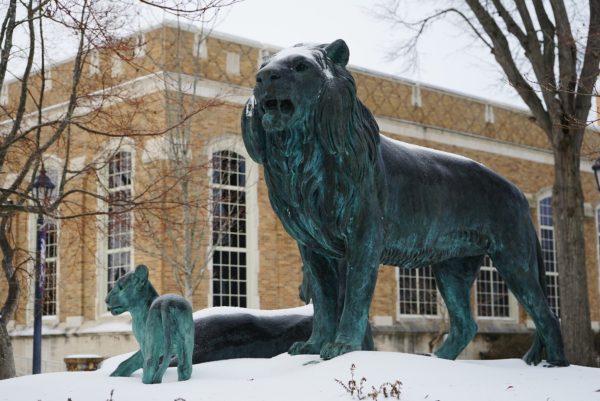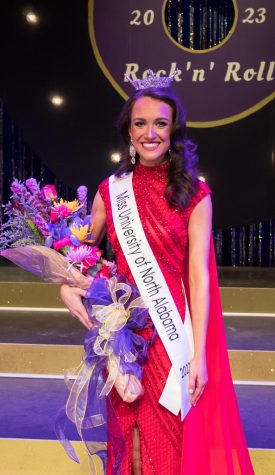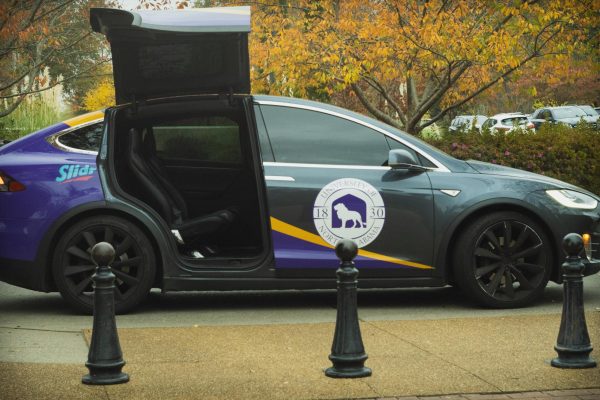UNA’s first visiting scholars from Uzbekistan
November 18, 2021
To kick start International Education Week at the University of North Alabama, two visiting scholars from Uzbekistan, Mukhriddin Kilichov and Gulnora Niyazova held a presentation on Nov. 15 in room [number] of Powers Hall.
At the event, the scholars spoke about their university’s education systems, showed videos of their culture and shared a meal with their guests.
Kilichov is the head of the International Cooperation Department at Bukhara State University (BukhSU). BukhSU is located in Bukhara, Uzbekistan – also known as “the old city.” A university known for being an active participant in reforms in education and science, BukhSU is ranked 27 out of 67 universities in Uzbekistan, according to edurank.org.
Niyazova is an English professor at Tashkent State University of Uzbek Language and Literature (TSUUL), which is known for training translators. TSUUL is located in Tashkent City, the capital of Uzbekistan, and unlike BukhSU, which was founded in 1930; it was only founded in 2016. Even so, TSUUL is ranked 18 out of 67 universities in Uzbekistan, according to edurank.org.
Kilichov and Niyazova are the first two visiting scholars from Uzbekistan to come to UNA. Their stay was made possible by the Faculty Enrichment Program (FEP), a scholarship that is funded by the United States Embassy in Tashkent and administered by American Councils for International Education. This scholarship covered their international flights to the U.S. and their living expenses.
“Being first has its ups and downs,” Kilichov said. “Many teachers and students are interested in Uzbekistan, [my] university’s activities and [our] urban lifestyle. [They will ask many] questions about [our] educational process, culture, cuisine, language, customs and economy in Uzbekistan. [This] can be very important for finding interesting conversations and making friends.”
Kilichov said it is also a responsibility to be the first as an employee and teacher of Bukhara State University because he understands that he is being judged by his efforts, diligence and responsibility.
Throughout their stay in the U.S., the scholars have to observe courses, attend academic conferences and work closely with their faculty mentors at UNA.
Kilichov is specifically observing courses that pertain to human resource management, whereas Niyazova is auditing courses that pertain to the English language.
While Kilichov acknowledges that UNA communication, events, outdoor activities, security, and live mascot is different from BukhSU, Niyazova takes notes on how students do their research and how teachers use digital tools in their classrooms.
“This is my third time being in America,” Niyazova said. “My previous visit was with the Partner in Education (PIE) program, and we were at the University of Huntsville. The education system is quite different [at UNA]. Here, [professors] show the way, light the light and watch [students] work. In our culture, [professors] show students the way, light the light, but at the same time they have to [ask students questions].”
Niyazova said if professors do not ask students questions, they think that you are not interested in their education and they may not study well. Students raise their hand when they are ready and if they do not, they get punished – this is the kind of education system she grew up in.
“[UNA] students have more freedom in speech, in lessons and their discipline,” Niyazova said. “They get to choose a discipline from their department, but at my university, when you become a student in one department and their disciplines are strictly given. It’s always been this way.”
This is one of the reasons why Kilichov and Niyazova are at UNA … to observe, but also to compose a proposal for their university with practices for them to adopt.
Another challenge that comes with taking on the role of a visiting scholar is being 6,894 miles away from their home country.
“In the last two years, I did not travel [because of COVID-19],” Kilichov said. “I became accustomed to staying at home. Nowadays, I miss my home, my relatives, my parents, even my students and my class.”
Niyazova, a wife and mother, shared a similar sentiment.
“I have a husband and one daughter,” Niyazova said. “[My daughter] is a teenager in her 10th year in high school. She [tells me that] she already misses me because even after she was born, I haven’t left her for a long time.”
Far away from home, Niyazova makes phone calls with her family a top priority.
“I wake up at 6 a.m. and I pray … because we are Muslim, we pray,” Niyazova said. “Then, I check my email and make a schedule. After breakfast, I come to the International Affairs Office, watch one or two lessons, and then work on my research on pragmatics. In the evening, my family calls and I prepare a meal and eat and we talk.”
However, while being homesick seems to be a part of the experience, it does not prevent them from enjoying their time here.
“I like this university,” Niyazova said. “I like the way [professors] teach. This is a privilege. You combine your cultural activities and you welcome all kinds of ethnic groups, and this is very important [to me].”
Senior Vice Provost for International Affairs Chunsheng Zhang hopes that after having the two visiting scholars on campus, a partnership between their universities can be established. Through this partnership, Zhang believes that it will bring more students from the Central Asia area to UNA.
“We have been trying to make the student population more diverse,” Zhang said. “[I] tell everyone that by having more international students and visiting scholars [at the university], it helps enhance academic excellence, it helps enrich the cultural experience of our university and people within the community and it helps energize economic growth.”


